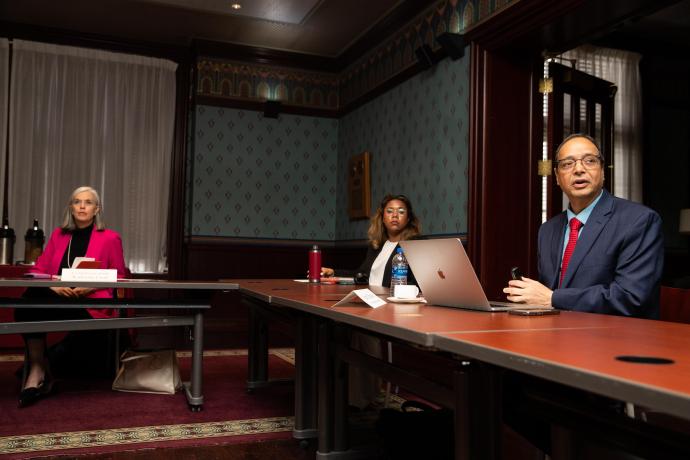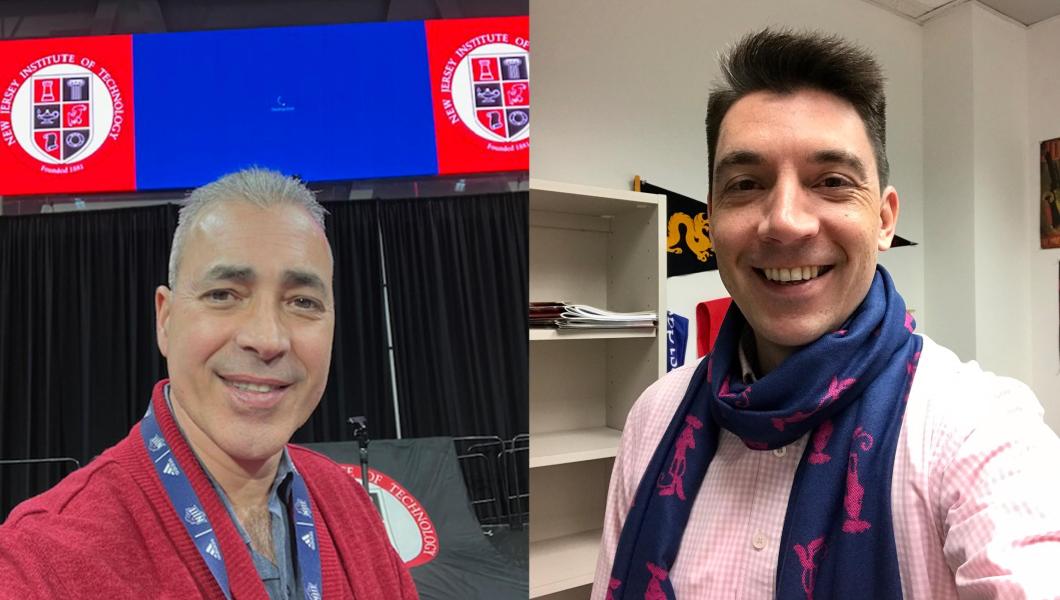Leader of the House Sees STEM in Action at NJIT

The Assistant Speaker of the House of Representatives visited New Jersey Institute of Technology to get a closer look at how STEM education and research fuels the economic mobility of the city, region and country.
U.S. Rep. Katherine Clark, D-MA-05, toured NJIT’s Makerspace — the largest in the state — and heard from the university’s president-elect, senior vice provost of research, deans and representatives of its engineering and business schools, and its director of experiential learning. Collectively, they explained how a blend of STEM education, research and entrepreneurship primes graduates for jobs that demand critical thinking, global awareness and business acumen.
Also, in assuming such roles, graduates lift themselves and their communities financially, which is particularly important among economically disadvantaged individuals in urban centers like NJIT’s home of Newark.
Clark came away impressed by the university’s facilities, its leadership and understanding of how NJIT’s STEM education and research can move society forward.
clark-payne-tour-3608-001.jpg

“I am grateful to my friend Rep. Donald Payne for sharing the work he’s doing alongside NJIT to build a stronger, more vibrant Newark,” said Clark, the fourth-highest ranking Democrat in the House and a member of the House Committee on Appropriations. “It was an honor to see firsthand NJIT’s commitment to ensuring upward mobility for underserved communities and understand their ability to connect academic innovations with real-world applications. Rep. Payne’s skill at bringing leaders across communities to the table and NJIT’s impressive programming and services together ensure that the impact of their work will be felt by the region, the state of New Jersey, and well beyond.”
Clark’s visit was arranged by colleague U.S. Rep. Donald Payne, Jr., D-NJ-10. Payne, a longtime partner and supporter of NJIT, is a subcommittee chairman in the powerful House Committee on Transportation and Infrastructure. The Committee has jurisdiction over national infrastructure and all modes of transportation, including aviation and mass transit, areas where NJIT has specific research experience.
“I am always impressed with the tremendous research and advances in the sciences and engineering being accomplished at the schools in my district, especially New Jersey Institute of Technology,” said Payne, Jr. “It was an honor to show this work to Congresswoman Katherine Clark, Assistant Speaker of the U.S. House of Representatives. The students at NJIT are creating the products and technologies of tomorrow. Many of them will use these products to create new businesses and possibly hundreds of local, high-paying jobs in our community. I am working to get more federal resources to help students and faculty use the most modern facilities to continue this research at the highest level. I want to thank Assistant Speaker Clark for her visit and NJIT officials for the tour of this incredible, state-of-the-art university.”
clark-payne-tour-3624-002.jpg

In welcoming Clark, NJIT President-Elect Teik Lim noted the university’s top R1 status in research, where it spends about $160 million a year, and is positioned to be flexible and responsive.
“That means it solves real-world problems in myriad areas that include the life sciences, health care and medical devices, civil infrastructure, advanced manufacturing, cybersecurity, transportation, nanotechnology, clean energy, clean water, resilient design, national defense, financial services and material sciences,” Lim said.
clark-payne-tour-3634-003.jpg

NJIT is also known for its diverse study body, particularly in engineering. It ranks top 20 nationally for producing African American and Hispanic engineers and nearly two-thirds of the engineering degrees that public institutions award to African Americans and Hispanics in New Jersey come out of NJIT.
As Lim noted, “NJIT is a launching pad for its diverse student body and is preparing the workforce that is needed for a technology-driven economy.”

